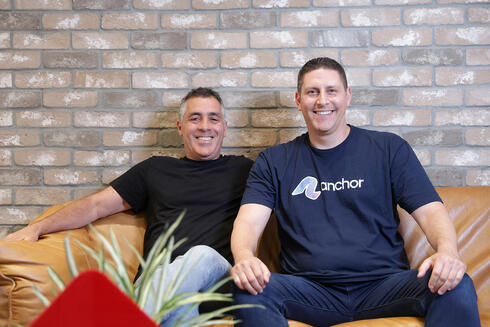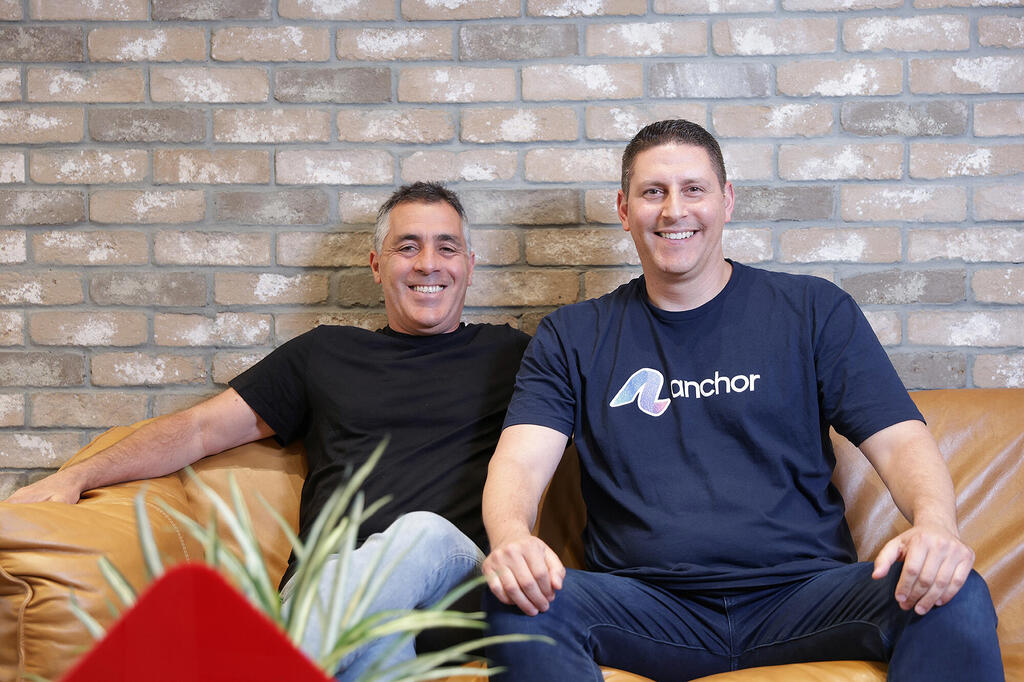
"Take enough funding to allow room for mistakes and learning"
As part of the Growth+ project by Calcalist and Poalim Tech, Fiverr President Ofer Katz emphasized the importance of financial reserves early on. Anchor co-founder Omry Man reflected on the past year’s biggest challenge: “We attended over 20 conferences across the U.S. to establish the brand.”
In a candid conversation about risk, resilience, and rapid growth, Fiverr President and CFO Ofer Katz sat down with Anchor co-founder Omry Man as part of the Growth+ project by Calcalist and Poalim Tech. The two exchanged lessons from the frontlines of Israeli entrepreneurship - from costly hiring mistakes in foreign markets to the grind of building a U.S. presence without ever setting up an office.
The conversation took place as part of the Growth+ project, now in its second year. The initiative aims to strengthen the resilience of Israel’s high-tech sector through a series of one-on-one meetings between seasoned entrepreneurs and early-stage startups, offering guidance, support, and insights on entrepreneurship, innovation, startup management, and scaling companies for growth.
Ofer, can you share a crisis you experienced early in your journey and the lessons you learned?
“It’s hard to pinpoint just one mistake. The biggest challenge we faced was trying to recruit American salespeople. It’s a different market, a different language, and a different culture. When you get that wrong, it can set the company back six months or more.
“Even before that, perhaps the most important thing is knowing how to choose the right partners, both co-founders and investors.
“One more thing I’ve learned: the world moves fast, so you have to move fast, too. Take enough funding to allow room for mistakes and learning. There will be mistakes, but with financial reserves, you can recover.”
Omry, what was your biggest challenge in the past year?
“We decided to engage with our customers directly by attending over 20 conferences across the U.S. to build our brand. That meant constant travel, managing our day-to-day operations simultaneously, and planning an entirely new budget.
“It was tough, but it built organizational muscle. We learned to optimize our budget, integrate initiatives, and it ultimately accelerated the opening of our U.S. offices.”
Ofer, what advice did you give Omry?
“We had a relatively short conversation, but one thing stood out: this is a strong product with built-in virality. I can imagine this business becoming much bigger. There’s massive potential to add more features, services, and capabilities.
“Your customers are service providers who cater to audiences, and those audiences are your potential customers. Leverage that as a growth engine: through referrals, free trials, and network connections. That’s how companies like Bill.com scaled.”
What did you learn from each other, and what will you take with you?
Omry: “Ofer is a true professional. What impressed me most was his calm demeanor, he has a quiet confidence that enables him to analyze complex situations with clarity.
“He also shared his perspective on AI. He’s not one of the alarmists. For him, AI isn’t about replacing people, it’s about speeding up processes and driving economic growth. We feel the same way at our company, and hearing that from him was reassuring.”
Ofer: “Omry built a company that’s generating $4 million in annual recurring revenue without any physical presence in the U.S., that’s no small feat.
“What I asked myself was: can it scale? Can you pour more budget into the same marketing channel and get similar results? If the answer is yes, then it’s a winning formula.”
Anything surprising or interesting you discovered about each other?
Ofer: “Hearing that the company has reached this level without a U.S. office is genuinely impressive.”
Omry: “I found out that Ofer dreams of taking two months off to unplug, but he probably loves his job too much for that to actually happen.”














